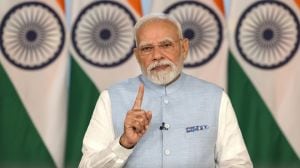How galacticos fell from the sky
Florentino Perez was elected Real Madrid President in 2000 on the back of a utopian promise to rescue the club from financial meltdown and a...

Florentino Perez was elected Real Madrid President in 2000 on the back of a utopian promise to rescue the club from financial meltdown and at the same time sign the world’s best players. Six years on, Real Madrid tops football’s rich list as a result of the club’s brilliant marketing campaigns and the arrival of players such as Ronaldo, David Beckham and Zinedine Zidane.
However, like a soccer Dr Frankenstein, Perez found that the “galacticos” monster he created has a will of its own and his experiment has not provided the results he dreamed of.
The big-name signings that Perez believed would allow the club to relive the glory years of the 1950s have ended up putting their own interests first.
‘‘What has gone wrong is that there is no unity between the players’’, Perez said on Monday after resigning. ‘‘They have lost ambition, they believe they are spectacular and great and I’m responsible for that.’’
The 58-year-old engineer will rightly take the credit for saving Real from financial disaster. He used his political connections to secure the sale of the club’s city centre training ground and clear crippling debts with the stroke of a pen.
His mistake was to believe he could then throw accepted football wisdom out of the window and try to achieve success by compiling a sticker book collection of the world’s most famous players.
Perez credited galacticos such as Zidane for Real’s Champions League victory in 2002 while forgetting that the foundations of the side were built upon less glamorous players such as midfielder Claude Makelele.
The day after Real won their last significant piece of silverware, the 2003 Spanish league title, Perez discarded coach Vicente del Bosque, a man who had steered them to two European Cup triumphs and two league titles in 3-1/2 years.
Perez said Del Bosque’s methods were outmoded and unsuitable for a club looking to move forward in the 21st century.
At the same time the Real chief signed the most marketableplayer in the world to enhance the brand image expected to lead the club to global domination.
Crucially, the arrival of England captain David Beckham was accompanied by the departure of Makelele, the player who had kept the Real ship afloat through his hard work and sacrifice.
None of Del Bosque’s successors were able to hold a lop-sided squad together while the constant pandering to the galacticos undermined the coaches’ authority and caused serious rifts in the team.
Although the club tried to rectify some of the problems, Real’s recruitment policy appeared to defy logic:
• When they failed to sign Arsenal midfielder Patrick Vieira, striker Michael Owen was brought in from Liverpool
• A year after backing out of signing Argentine centre-half Gabriel Milito because he had injury problems, Real signed injured England international Jonathan Woodgate — who spent the next year on the sidelines
• In the last eight months they have signed three right-sided defenders but still have no proper cover for Roberto Carlos on the left
• Owen’s departure left Real exposed up front and instead of buying an out-and-out striker, they replaced him with yet another midfielder, the out-of-shape Antonio Cassano.
Perez, for all his big talk, is an astute operator and on his departure he has pulled a final ace out of his sleeve. Having backed the players against everyone over the past sixyears, he has left them exposed for the first time and they will now have to produce the goods on the pitch or be held responsible for their failings.
There is little doubt that there will be a galactico clear-out at the end of the season, but Perez will be hoping that his departing gesture may prompt the team to produce one final fling in this season’s Champions League. (Reuters)
|
The Un-real story
|
||||
|
2000: Perez stands for election on promise to buy Luis Figo out of his contract with arch-rivals Barcelona for a then world record fee of $56 million. Wins poll, Figo signs on six-year deal. |
||||
Photos





- 01
- 02
- 03
- 04
- 05

























